FORT JACKSON, S.C. -- Generations of "Wildcat" Soldiers returned to the dawn of the 81st Infantry Division that began more than 90 years ago here. The nickname reportedly was adopted for the division when a group of Soldiers encountered a wildcat roaming the creeks of Camp Jackson, later named Fort Jackson.
The 81st Infantry Division Association's annual reunion, held Oct. 9 to 12, brought veterans of World War II, Korea, Vietnam and more recent eras together with current members of the 81st Regional Support Command to exchange personal stories of past military operations.
From interacting with the Army's newest Soldiers in basic training to eating at an Army chow hall, Dr. (Lt. Col.) John Boyd, the 81st RSC Historian, said reunions are moments in which Soldiers, families and friends can meet and educate each other about the past and future life of being a Soldier.
"It offers them a chance to reflect on their sacrifices and achievements and to memorialize their friends and comrades who did not make it," he said.
Some of those stories came from World War II veteran Pfc. Wendall R. Clift, who joined the 81st Division on August 12, 1943.
"It's about camaraderie," he said. "We don't really talk about the days of combat, but rather funny stories that relate to certain events during the war."
Clift has spent the past 21 years attending the reunion, visiting old friends and reminiscing about the past. Clift admits as years go by, the number of living 81st Division Soldiers are shrinking.
"We are getting old and there are not too many of us left out there," said the Venice, Fla., resident. "We used to have 50 to 60 veterans show up, but now there is just a handful."
Boyd said keeping in contact with veterans of past wars is rewarding for both today's Soldiers and the veterans.
"We take the time to reminisce and reflect on past achievements as well as to educate members about current operations and trends in our military," he said.
Bringing a historical perspective to what the Army is and was, is one goal of the annual reunion.
"Most importantly, we need to treat them like we someday want others to treat us -- with honor, respect and a recognition that the experience of a veteran is unlike any other," Boyd said.
For Maj. Kenneth Crowe, headquarters commandant for the 81st RSC, attending the reunion helped him gain a better understanding of traditions and heraldry of the Army.
"When talking with the veterans there is rarely an occasion when we do not come across a topic where we faced very similar situations and relied on enduring Army standards to resolve the problem," Crowe said.
Crowe said it was important the veterans are able to interact with today's Soldiers.
"They realize that even though we have a much higher reliance on technology, the Army is still about Soldiers and people, and we are the heart of what has made every generation of Soldier great."
Clift said the biggest difference he noticed when arriving at Fort Jackson is the large number of basic trainees and small numbers of drill sergeants.
"Back in those days, we had more drill sergeants that would always keep an eye on you," Clift said laughing. "There are so many more Soldiers going through basic training then I saw when I was here."
Whether it is 1944 or 2008, Clift said Soldiers will always have something in common.
"Duty. Honor. Country," he said.
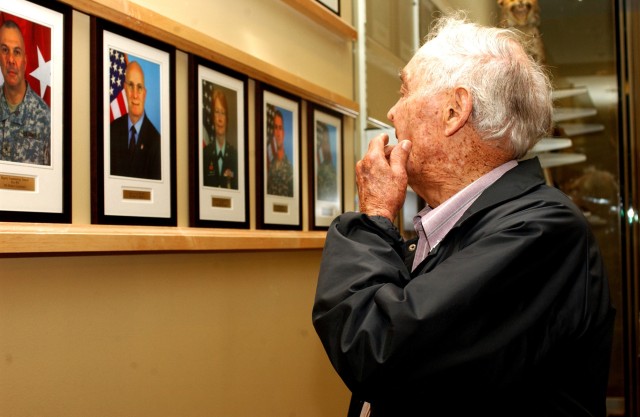
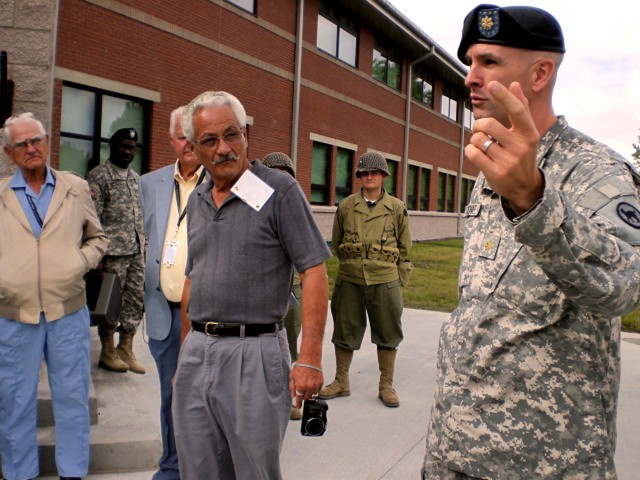
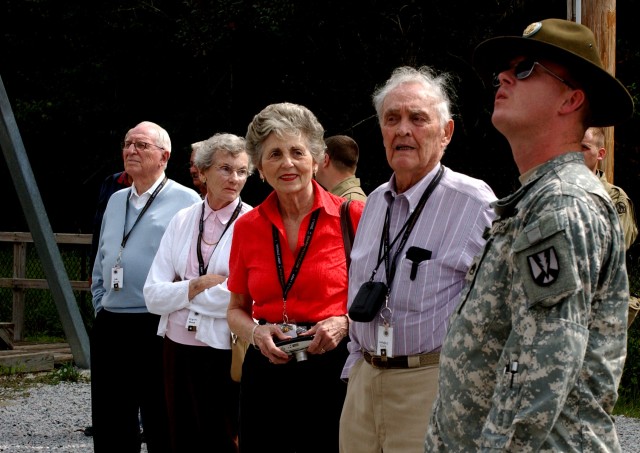
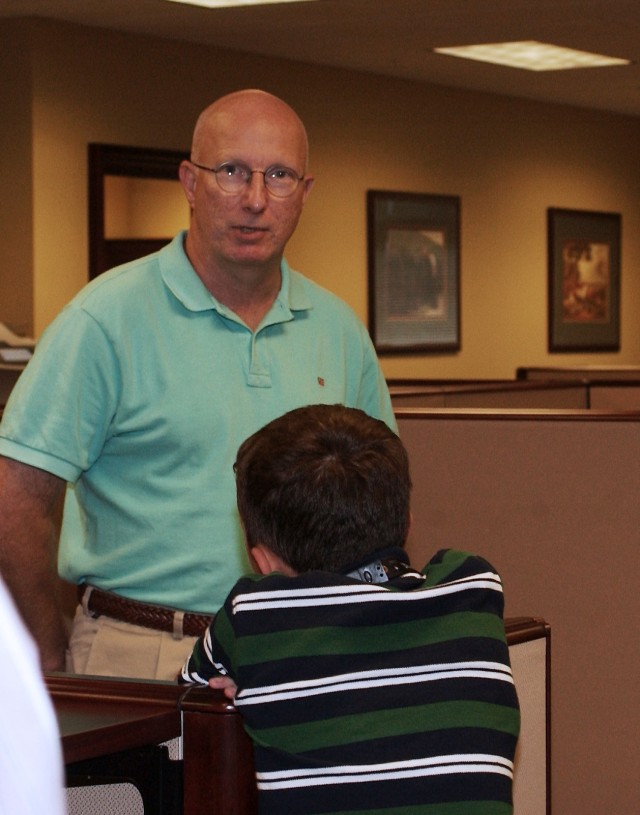
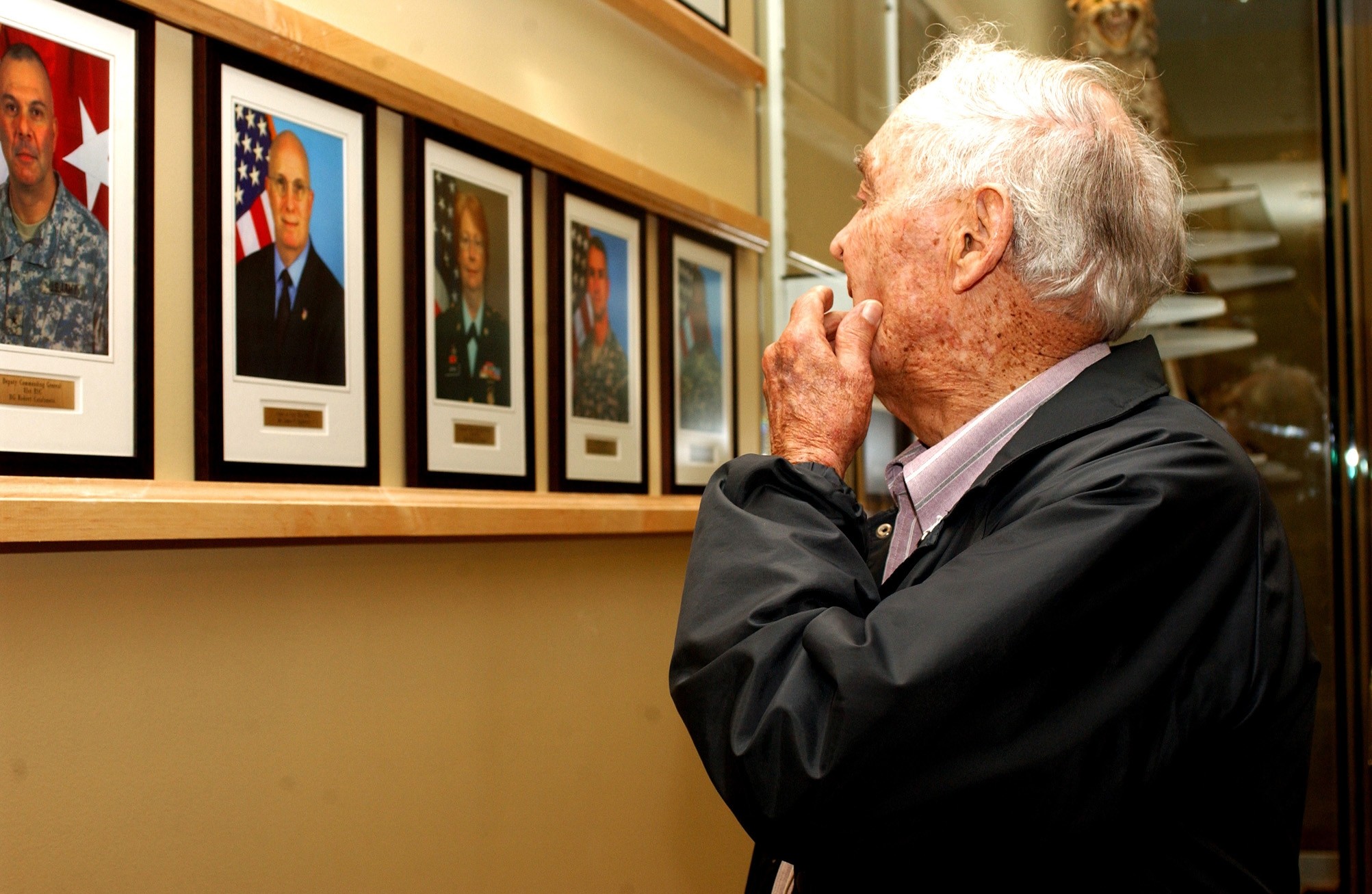
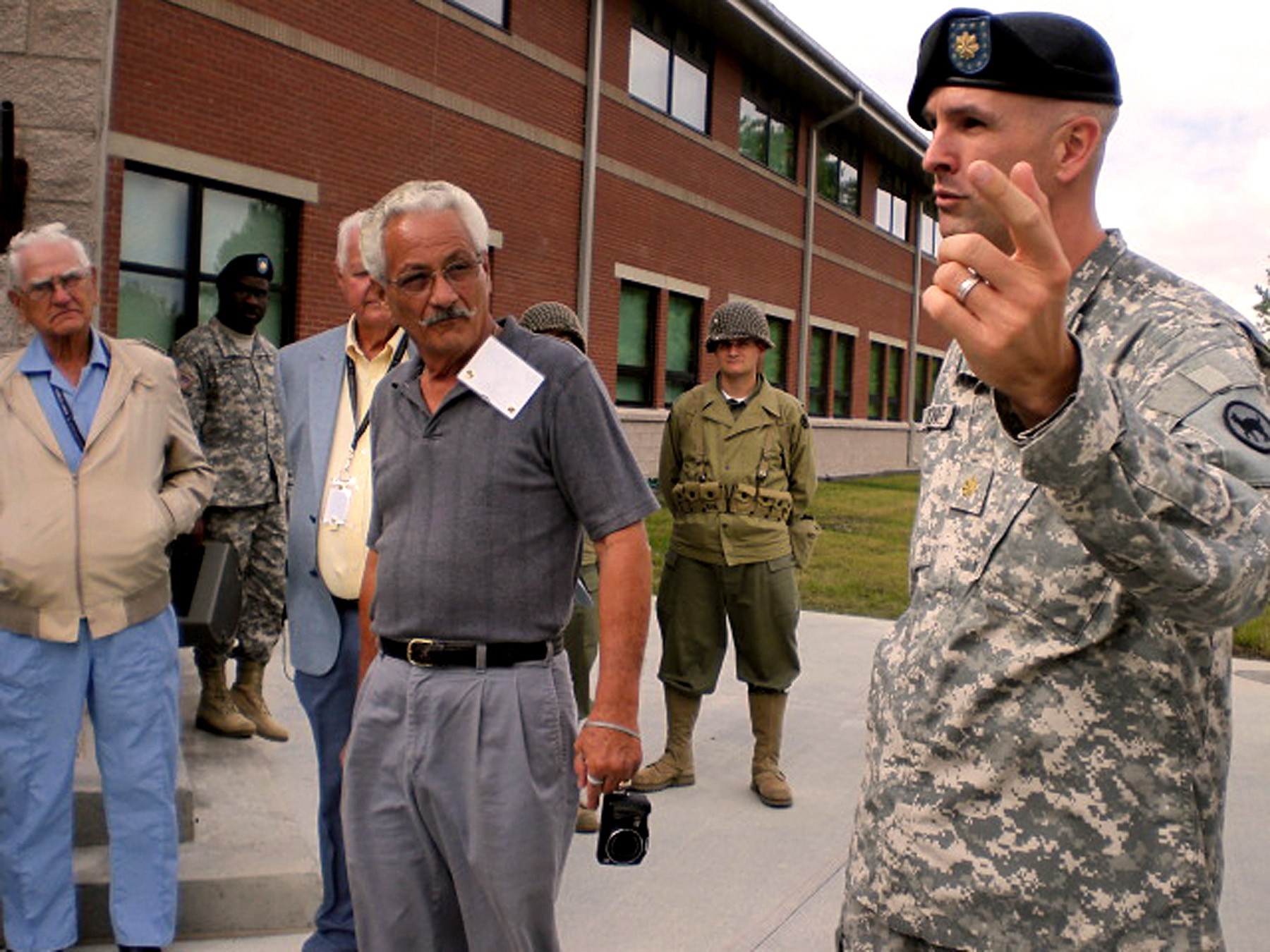
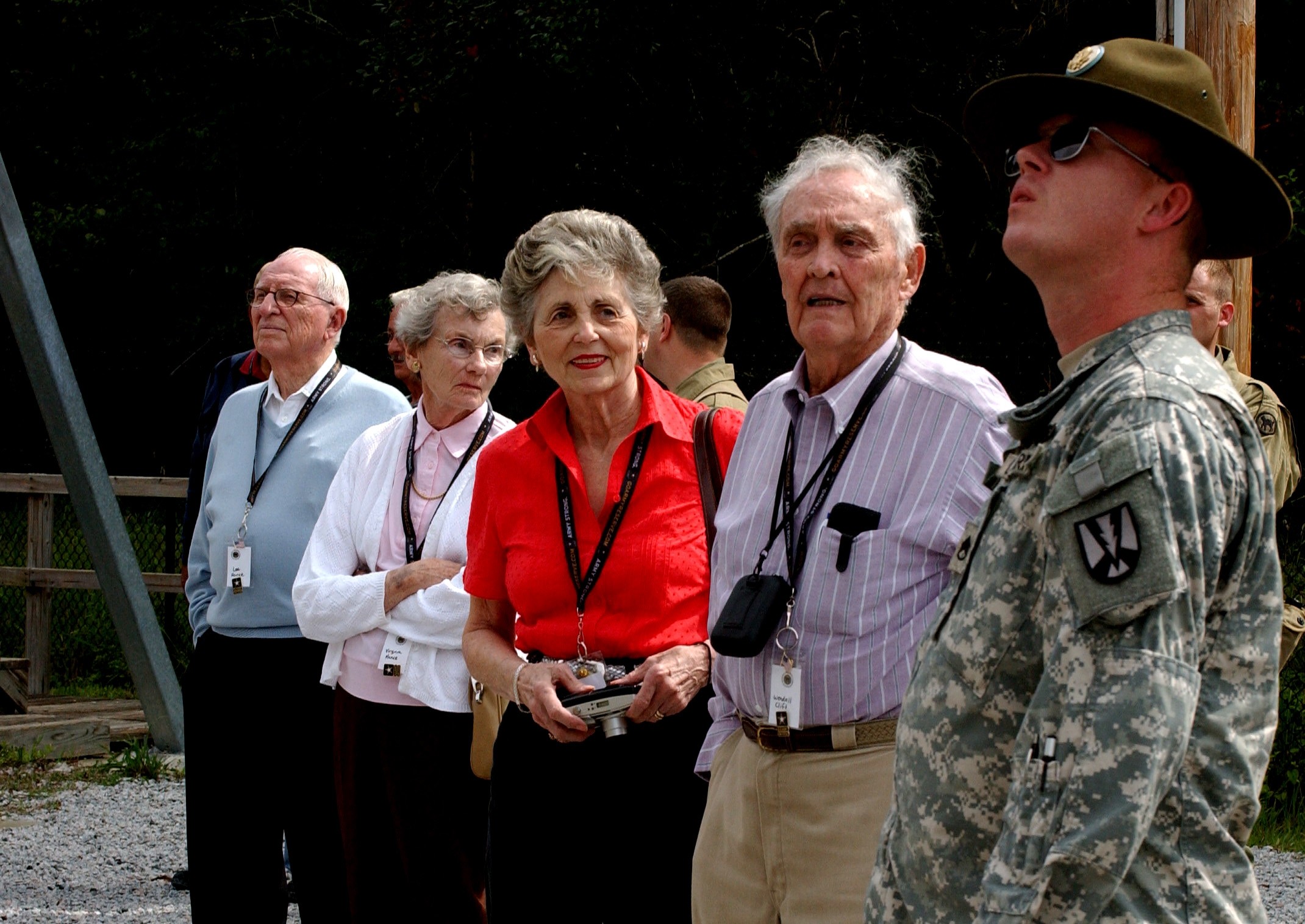
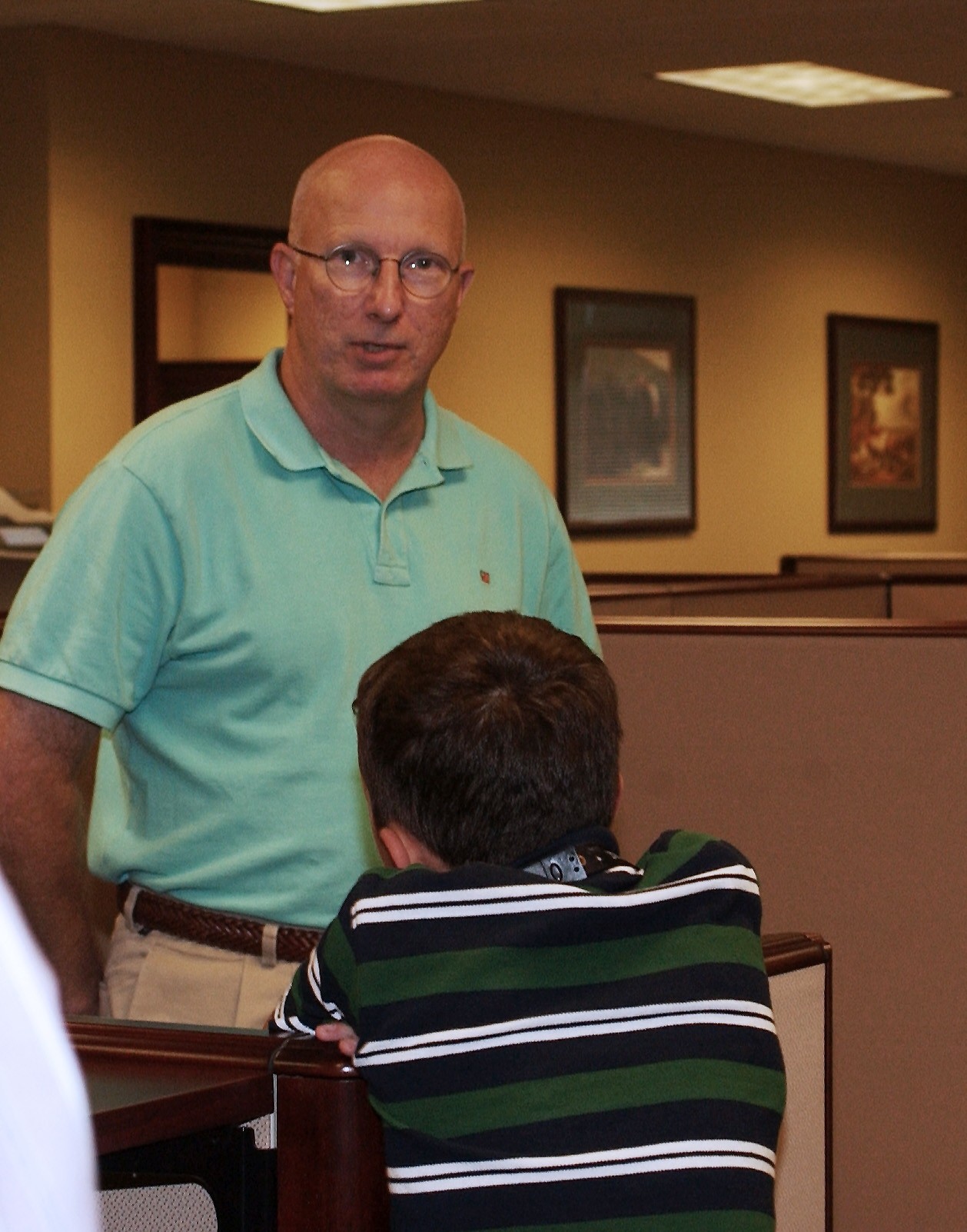
Social Sharing